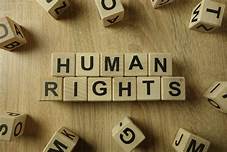
| Course Name | Human Rights |
| Course Subject | Political Science |
| Course Code | AUD03 |
| Course Coordinator | Prof. Deepak J |
| Course Category | Audit Courses |
About Course
The course helps the students to know about global as well as national importance of human rights. This course gives a clear idea about the role of United Nations and its intervention in protecting human rights all over the world. Basic human rights should be ensured through laws. It also delineating about the laws for protecting human rights.
Prerequisites
Plus Two Knowledge
Outcomes
· This course is about understanding constitutional provisions of human rights
· This course aims to understand the role of United Nations in protecting human rights
· Various United Nations agencies are working on different humanitarian aspects to ensure human rights . Through this course students will be able to understand the role of such agencies in ensuring human rights
Course Syllabus
Lecture Notes
Module 1, 2, 3
Module 1, 2, 3 prepared by Ms.Ardra V.S
Module 4
Module 4 prepare by Prof. Deepak J
Lecture Videos
Module 1 - Right to Equality
Module 1 - Right to Equality
Module 1 - Right to Particular Freedoms
Module 1 - Right to Particular Freedoms
Module 2 - Video 1 - Broad classification of Human Rights and Constitutional Provisions
Module 2 - Video 1 - Broad classification of Human Rights and Constitutional Provisions
Module 2 - Video 2 - Broad classification of Human Rights and Constitutional Provisions Part 2
Module 2 - Video 2 - Broad classification of Human Rights and Constitutional Provisions Part 2
Broad classification of Human Rights and Constitutional Provisions Socio Economic Rights
Broad classification of Human Rights and Constitutional Provisions Socio Economic Rights
Broad classification of Human Rights and Constitutional Provisions Socio Economic Rights
Broad classification of Human Rights and Constitutional Provisions Socio Economic Rights
Module 3 - Video 1 - United Nations Declaration of Human Rights - Part 1
Module 3 - Video 1 - United Nations Declaration of Human Rights - Part 1
Module 3 - Video 2 - United Nations Declaration of Human Rights - Part 2
Module 3 - Video 2 - United Nations Declaration of Human Rights - Part 2
Module 3 - Video 3 - United Nations Declaration of Human Rights
Module 3 - Video 3 - United Nations Declaration of Human Rights
Module 3 - Video 4 - United Nations & its Principal Organs - Part 1
Module 3 - Video 4 - United Nations & its Principal Organs - Part 1
Module 3 - Video 5 - United Nations & its Principal Organs - Part 2
Module 3 - Video 5 - United Nations & its Principal Organs - Part 2
Module 3 - Video 6 - United Nations & its Principal Organs - Part 3
Module 3 - Video 6 - United Nations & its Principal Organs - Part 3
Module 4 - Video 1 - Historical Background
Module 4 - Video 1 - Historical Background
Module 4 - Video 2 - Indian Constitution & Human Rights
Module 4 - Video 2 - Indian Constitution & Human Rights
Module 4 - Video 3 - Agencies for protecting human rights
Module 4 - Video 3 - Agencies for protecting human rights
Module 4 - Video 4 - Agencies for protecting human rights - Part 2
Module 4 - Video 4 - Agencies for protecting human rights - Part 2
Module 4 - Video 5 - Human rights movements in India - Part 1
Module 4 - Video 5 - Human rights movements in India - Part 1
Module 4 - Video 6 - Human rights movements in India - Part 2
Module 4 - Video 6 - Human rights movements in India - Part 2
Practice Quiz
a) 1805
b) 1856
c) 1829
d) 1878
a) Gargi Act
b) Irwin Act
c) Kamala Act
d) Sharda Act
a) 1940
b) 1924
c) 1931
d) 1919
a) John Locke
b) Rousseau
c) Marquis de Lafayette
d) None of the above
a) 12 October 1993
b) 26 January 1950
c) 25 June 1975
d) 8 April 1981
a) 1 November 1956
b) 8 August 1981
c) 10 August 2013
d) 11 December 1998
a) Prime Minister
b) Supreme Court Chief Justice
c) President of India
d) None of These
a) Five
b) Four
c) Seven
d) Ten
a) Five
b) Four
c) Seven
d) Ten
a) UNO
b) UNICEF
c) UNESCO
d) International Court of Justice
a) 1991
b) 1992
c) 1993
d) 1994
a) 5 years or upto 62 years of age
b) 5 years or upto 65 years of age
c) 6 years or upto 65 years of age
d) 5 years or Upto 70 years of age
a) First-generation
b) Second generation
c) Third generation
d) Fourth generation









